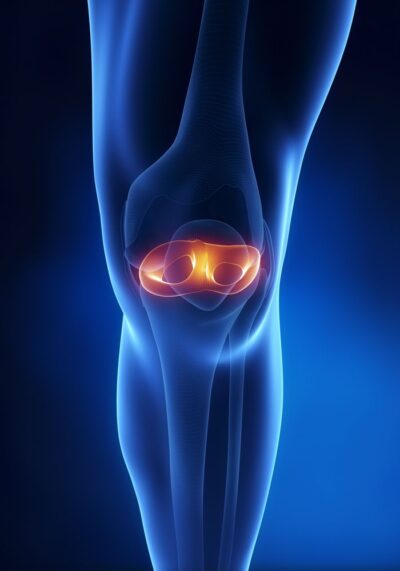Meniscus Injury Specialist

Are you experiencing pain, stiffness or locking in the knee? If so, you may have experienced a meniscus root tear. Meniscus root tears can be a result of trauma or from degeneration. Meniscus root tear specialist, Doctor Riley J. Williams provides diagnosis as well as surgical and nonsurgical treatment options for patients in Manhattan, Brooklyn, New York City and surrounding areas who have sustained an meniscus root tear injury. Contact Dr. Williams’ team today!
What is a meniscus root tear?
A torn meniscus root is a tear in the meniscal cartilage in the knee. There are two crescent-shaped menisci in each knee located on the outside (lateral) and on the inside (medial). The meniscal cartilage acts as a cushion to absorb impact over a larger surface area in the knee joint between the thighbone and the shinbone. Both the lateral and medial menisci provides stability when walking, running, or pivoting. The root is the anchor point of the meniscus on the tibia surface. If a torn meniscus root occurs, it can cause pain, instability and ultimately lead to the development of osteoarthritis. A meniscal root tear can occur in one of two ways, either from trauma or degeneration. Traumatic tears usually occur in a younger, athletic population in the lateral meniscus and can also be associated with an ACL tear. It may stem from a sudden twist in the knee. Degenerative tears typically occur in middle-aged individuals, more commonly affecting the medial meniscus in the female population due to wear and tear. Dr. Riley J. Williams, orthopedic knee specialist serving Manhattan, Brooklyn, New York City, NY and surrounding areas, has extensive experience in treating meniscus root tears and other cartilage repairs and restorations.
What are the symptoms of a meniscal root tear?
A torn meniscus root may occur in either of the two menisci located within the knee joint. The symptoms of a traumatic meniscal root tear in athletic individuals usually affects the lateral meniscus and may include:
- Pain
- Dysfunction – Knee does not move properly
- Instability
- Early development of osteoarthritis
- Stiffness
- Swelling
Symptoms of a degenerative medial meniscus root tear, which usually affects middle-aged individuals may include:
- Popping noise
- Aching in the back of the knee
- Sharp increase in pain with more vigorous activities
- Inability to bear weight when stepping down stairs
- Stiffness
- Swelling
- A feeling of internal knee instability
How is a meniscal root tear diagnosed?
Dr. Williams will inquire as to how your injury occurred. In athletes, meniscus root tears commonly happen when the sport requires cutting or changing direction quickly. The doctor will perform a physical examination of the injured knee and distinguish the site of pain. An x-ray may be used to rule out other injuries, and the doctor will order an MRI. An MRI provides imaging of the cartilage for Dr. Williams to further diagnose your injury and to provide a treatment plan.
What are the treatment options for a meniscus root tear?
Non-surgical treatment:
Conservative treatment methods are sometimes reserved for medial meniscal root tears. Elderly patients or patients who are poor candidates for surgery due to factors such as obesity or who have underlying health problems may be treated non-surgically. Non-surgical treatment may include activity modification, rest, and NSAIDs (non-steroidal anti-inflammatory drugs) like ibuprofen, to manage pain and inflammation. Physical therapy or exercises to increase strength in the quadriceps and hamstring muscles as well as increase flexibility may also be necessary.
Surgical treatment:
Surgery is typically recommended for patients where conservative methods have failed to relieve pain and if the knee is unstable. Surgical treatment is often needed when the patient experiences a meniscus root tear from a trauma. Surgical treatment should be performed whenever possible to prevent further damage to the meniscus and to avoid the rapid development of osteoarthritis. The damaged meniscal root is repaired to anchoring the affected area back to its natural point of contact with the tibia. With arthroscopic surgical meniscal root repair the patient can expect the use of crutches for 1-2 weeks as well as physical therapy. Total recovery time is approximately 3 months.
For more information on a meniscus root tear and the treatment options available, please contact the office of Riley Williams, MD, orthopedic knee specialist serving Manhattan, Brooklyn, New York City, NY and surrounding areas.
Locations
610 W 58th Street
New York, NY 10019
148 39th Street, 7th Floor
Brooklyn, NY 11232



